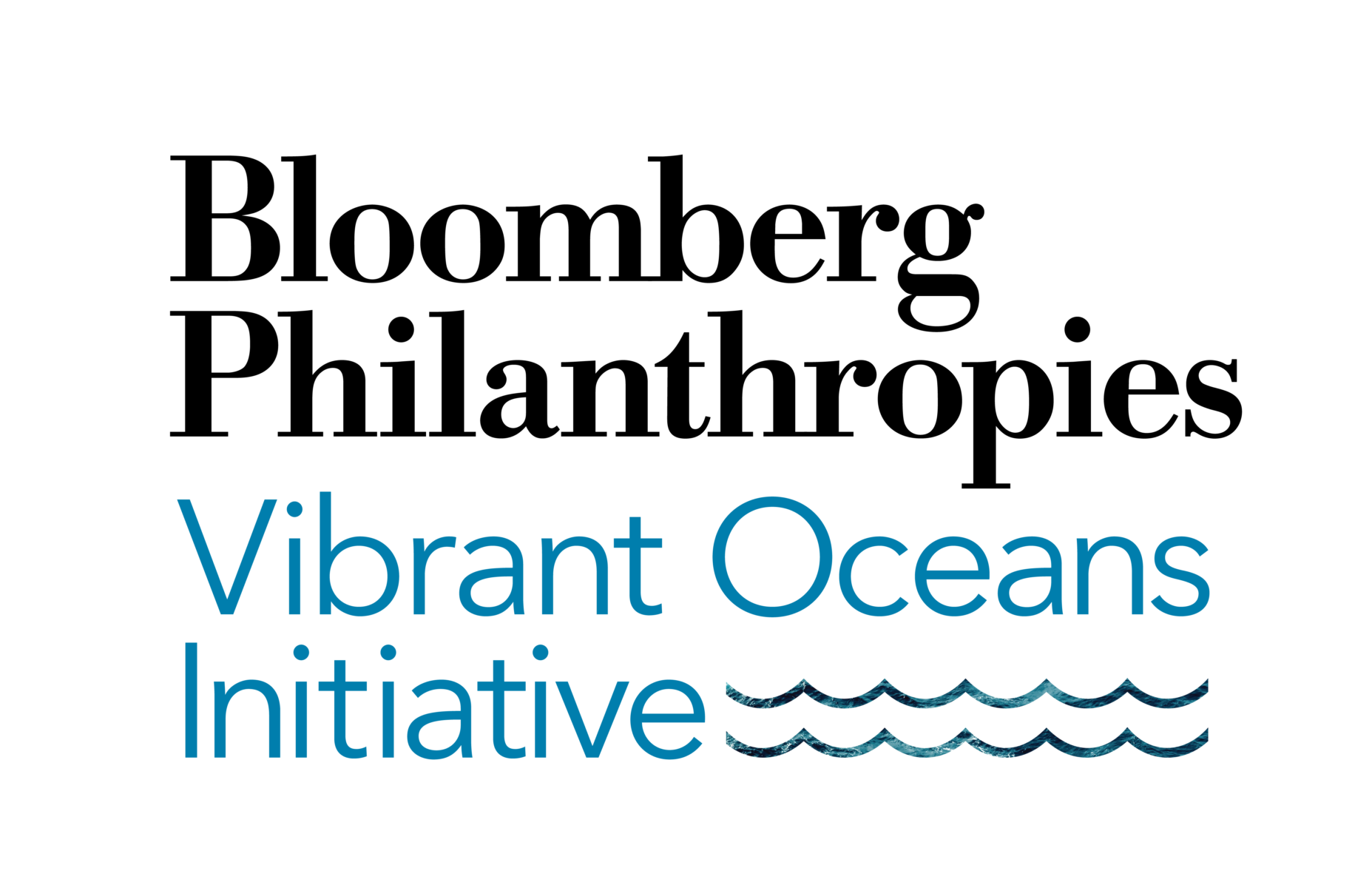We feature organisations that are working on ocean issues and their links to the Commonwealth Blue Charter.
If you’re interested in being featured, please contact us.

Spotlight: Bloomberg Philanthropies, Vibrant Oceans Initiative
Tell us the vision of Bloomberg Philanthropies.
Bloomberg Philanthropies works to ensure better, longer lives for the greatest number of people by focusing on five key areas: the arts, education, the environment, government innovation, and public health.
What has been your organisation’s key achievements over the past 12 months?
Over the past 12 months, Bloomberg Philanthropies’ Vibrant Oceans Initiative has been:
- Addressing key threats in 50 coral reef geographies that are projected to be less vulnerable to long-term climate impacts and can repopulate other reefs over time,
- Promoting the adoption of high-impact, science-based fisheries and marine protection policies in 10 countries,
- Supporting countries to achieve fishing activity transparency by making fishing vessel data public.
We were particularly encouraged when Chile passed a new law to make vessel tracking data publicly available in March, in cooperation with our partners Global Fishing Watch and Oceana. Through this decision, the government will be better equipped to improve surveillance of its marine protected areas and ensure the sustainability of its fishery sector.
How does Bloomberg Philanthropies’ work support the Commonwealth Blue Charter and its Action Groups?
Bloomberg Philanthropies and the Commonwealth Secretariat signed a Memorandum of Understanding in April 2018, to support practical action around the Commonwealth Blue Charter, leveraging learnings from the Vibrant Oceans Initiative and the Bloomberg network of experts. As part of this collaboration, we co-hosted the first Partnership Day in June 2019, opened by Secretary General of the Commonwealth, Rt Honorable Patricia Scotland QC, for Action Groups to network and start identifying potential partners. Through our partnership we have provided access to data and marine conservation experts, as well as a conference room with teleconference facilities in Marlborough House, which can be used to host high-level Blue Charter meetings.
We are excited to build upon the leadership of Commonwealth countries to disseminate best practice across the Commonwealth network and support the implementation of Action Groups plans. We will continue to exchange ideas with the Secretariat, engage directly with Commonwealth countries and support each other at key international events.
Which Commonwealth countries do you currently work in or would like to be involved in over the coming year?
The Vibrant Oceans Initiative works directly in Fiji and Australia where we are respectively securing fisheries regulations and protecting coral reef threatened by pesticide runoffs, destructive fishing and climate change. Through our contribution to the Oceans 5 philanthropic collaborative and our partners Oceana, Rare, Global Fishing Watch and the Wildlife Conservation Society, we support ocean conservation in many more Commonwealth countries, in particular around marine protected areas and sustainable fishing. Our experience overlaps particularly well with 5 Action Groups: Ocean and Climate Change, Coral Reef Protection and Restoration, Marine Protected Areas, Ocean Observation and Sustainable Coastal Fisheries.
Access to finance is a fundamental challenge facing all stakeholders that work on ocean action. What are your thoughts on the pros and cons of philanthropic grants versus returnable investments?
We know that environmental funding represents less than 2% of grant-making (Our Shared Seas, 2019). Philanthropic funding alone will not fill the gap needed to design a sustainable ocean economy and protect the livelihoods of people who depend on oceans to survive: philanthropic grants or returnable investments alone cannot solve the numerous threats facing our ocean. This is why we work with leading stakeholders across governmental, civil society, industrial and philanthropic sectors to achieve shared goals. Similarly, we have experienced that public-private partnerships with aligned partners can be effective at creating a greater vision for managing natural resources better.
Has COVID-19 changed your organisation’s ocean-related priorities in the immediate to medium term?
No, in fact we are more committed than ever. Through the Vibrant Oceans Initiative, we have been protecting critical ocean resources for the health and livelihood of over 3 billion people around the world. Our commitment to ocean conservation is making a critical difference to ensure the long-term resilience of ecosystems and sources of income and nutrition for coastal communities. We have seen that prior conservation measures have helped communities and local government be more adaptable and resilient in the face of the pandemic, for example thanks to managed marine areas guaranteeing sources of fish or village saving clubs providing emergency funds. In addition, Bloomberg Philanthropies has responded globally to the challenges our partners and cities are facing by quickly setting up a multi-pronged COVID-19 response over the past few months. To date, Bloomberg Philanthropies has given $331 million to help fight the virus and is continuing to protect our ocean via the Vibrant Oceans Initiative Phase II $86 million investment.
What ocean story/experience from the last 12 months has inspired you the most?
We have been particularly inspired by the resilience, creativity and determination from our NGO partners throughout the pandemic. Our Vibrant Ocean’s stars, Oceana, Rare, the Wildlife Conservation Society and Global Fishing Watch have been able to continue connecting with government stakeholders virtually, as well as turn around their field work models to engage with communities remotely. We have been galvanised by the use of technology and data to protect our health, and we expect technology to continue being a key tool for the protection of natural resources going forward. We are hopeful that scalable, democratic platforms like Global Fishing Watch will gain further momentum in an increasingly online world. Providing free and remote satellite technology services helps countries manage their ocean resources better, as they continue to take action for the protection of critical ocean resources in the context of climate change.
For more details visit Bloomberg.org or contact Pauline Vaskou.
We feature organisations that are working on ocean issues and their links to the Commonwealth Blue Charter.
If you’re interested in being featured, please contact us.
View other partnership spotlights:
